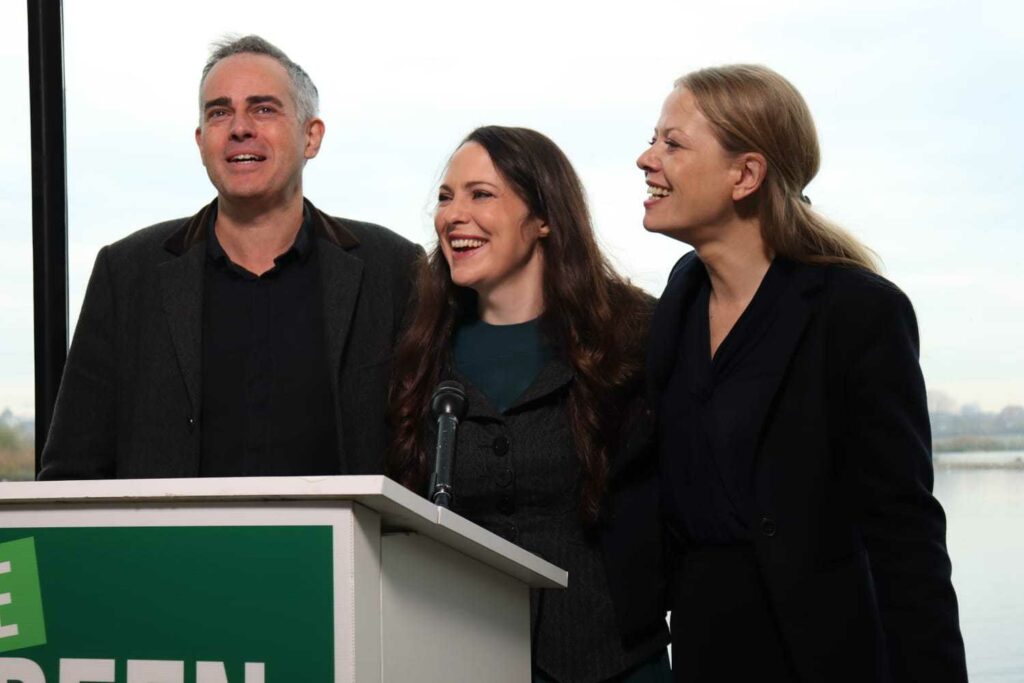The Green Party today launched its manifesto for the 12 December election, which hinges on its Green New Deal.
This builds on the party’s previous pledges to reduce emissions, making the UK carbon neutral by 2030 and invest £100 billion a year for the next decade in climate action. This will form the basis of the premier Parliamentary Bills proposed in the party’s manifesto, along with nine others.
Jonathan Bartley, co-leader of the Green Party of England and Wales, welcomed the manifesto and called the Green New Deal the most ambitious in the world.
“Today, we’re proud to put forward a manifesto which puts us on track to remain in the European Union and make the whole country carbon neutral by 2030, while delivering social justice across Britain.
“While the other parties are trying to catch up, we’re still racing ahead, reaching new horizons.”
£12 billion to be invested in renewables
The manifesto confirms the party’s previous promise of investing £12 billion of the £100 billion a year in renewable electricity generation. This will come from public borrowing, and be on-top of £6 billion worth of private investment.
It is aiming for 70% of the country’s electricity to be generated by wind power by 2030. This will allow generation to increase to about 500TWh of electricity, nearly all of which will be renewable.
A further £2.6 billion will be invested in fitting solar panels on a million homes a year, enabling 10 million homes to generate their own renewable energy by 2030. It forms part of the party’s pledges to ensure communities and individuals benefit fairly from the energy transition.
As well as wind and rooftop solar specifically, the manifesto says the party will: “Introduce new support for solar, geothermal, tidal, hydro and other renewable energies to provide much of the remainder of the UK’s energy supply by 2030.”
It adds that the party will ban the construction of nuclear power plants, referring to the technology as “a distraction from developing renewable energy” that carries unacceptable risks and create unmanageable waste.
Fracking will be banned, “now and forever”. The party has long campaigned against the method of producing natural gas.
Doubling the capacity of the national grid
Further to the investment in renewables, £10.4 billion will be spent on upgrades to the grid. This will double the capacity of the national grid, which the party says will be needed to store and deploy all the new renewable energy.
As part of this, they will deploy demand side management and significantly expand and improve the efficiency of the electricity grid.
Short-term storage on the grid will be expanded, and include domestic solar batteries, storage as heat in hot water cylinders and thermal stores and smart control of vehicle battery charging.
The role of interconnectors could also increase, with the party promising closer relationships and trading with the UK’s neighbours.
“Subsea connections to Norway and Iceland to connect to their hydro and geothermal power supplies will be particularly encouraged,” the manifesto says.
EV investment, but cycling preferred
While much of the manifesto’s transport pledges focus on improving the rail network, as well as investment into cycle paths and public transport, there are also points regarding electric vehicles and the role they will play in the party’s Green New Deal.
The Green Party will create a network of EV changing points across the UK, ensuring they are required through the planning system, as well as encouraging the private sector to deliver them.
It will invest £2.5 billion in electric vehicles and infrastructure, to ensure that there are charging points in public spaces.
All existing petrol stations and motorway services station will be required to offer EV charging points by 2025.
But the manifesto states that “even electric vehicles pollute, so they represent an improvement on the current situation, not a solution in themselves”.
As such, there are also promises that EV infrastructure will not take up pavements and cycling spaces, as walking and cycling are preferred transportation methods.
Energy efficiency measures for building and renting
The manifesto outlines plans to improve energy efficiency in a number of ways, including reducing heating bills for ten million homes by 2030 through retrofitting measures, on top of insulation improvements.
The Green Party says it will fund local authorities to better insulate all homes, and will invest £24.6 billion to aid these measures.
For new houses and other buildings the regulations will change, and all new buildings built by private developers will have to be built to the Passivhaus standard. It will also enable selfbuild development that meets the same high energy efficiency standards.
Local authorities will receive funding to better insulate non-domestic buildings of £7 billion.
Improvements to the efficiency of rented properties have also been outlined, with all 8 million rented homes becoming subject to a Minimum Energy Efficiency Standard escalator. This will help to raise the minimum level of energy efficiency from the currently allowed E rating to A rating by 2030.
‘Hitting the ground running’
Sian Berry, co-leader of The Green Party, said: “The Greens are clear about which path we must take as a country. And that’s why each and every Green MP elected this December will have in their, in-tray a legislative agenda ready to go.
“Ten Bills ready for the next Parliament to hit the ground running. Because the future won’t give us another chance to get these next two years right.”
The other bills cover aspects such as People’s Vote, Sustainable Economy, NHS Reinstatement, Further and Higher Education and Voting Reform.
The Green Party is the first of the majors to release its manifesto, with Labour’s expected on Thursday and the Conservative Party yet to announce theirs.
With the election campaigns well underway however, a number of energy pledges have already been announced including Boris Johnson’s promise to plough an additional £500 million into EV charging infrastructure and Labour’s Warm Homes for All proposal.






